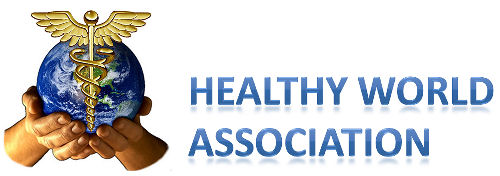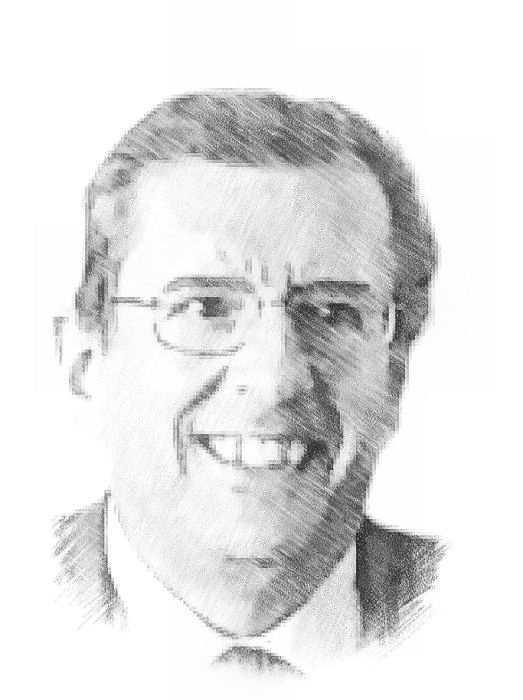
Enrico M. Staderini
|
|
Prof. Enrico M. Staderini MD PhD
Professor in biomedical technologies
Haute École d'Ingénierie et de Gestion du Canton Vaud
Yverdon-les-Bains - Switzerland.
 Full CV
Full CV
|
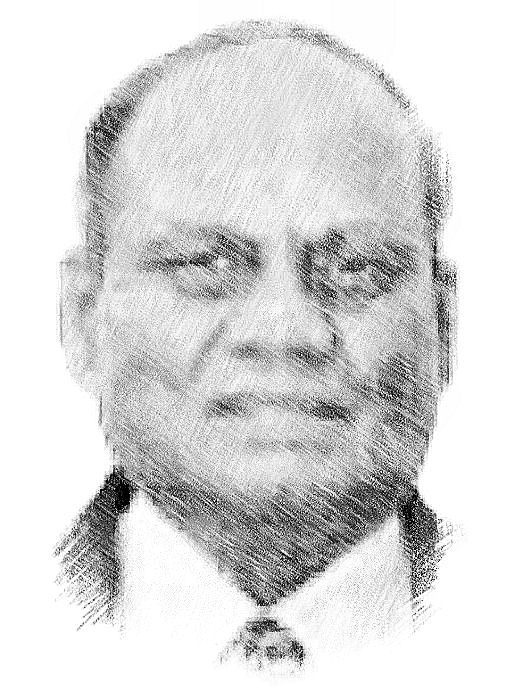
PS Prasad Dandamudi
|
|
Prof. P.S. Prasad MD PhD
Programme Director, Life Sciences Technologies and Research
Jawaharlal Nehru Technological University Kakinada JNTUK
Andhra Pradesh - India.
|
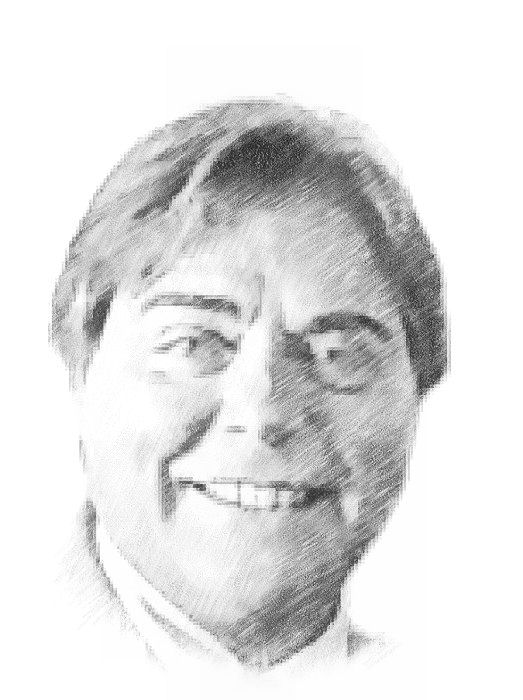
Sandro Gentili
|
|
Prof. Sandro Gentili MD PhD
Physical Medicine and Rehabilitation
Tor Vergata University Hospital
Rome - Italy
|
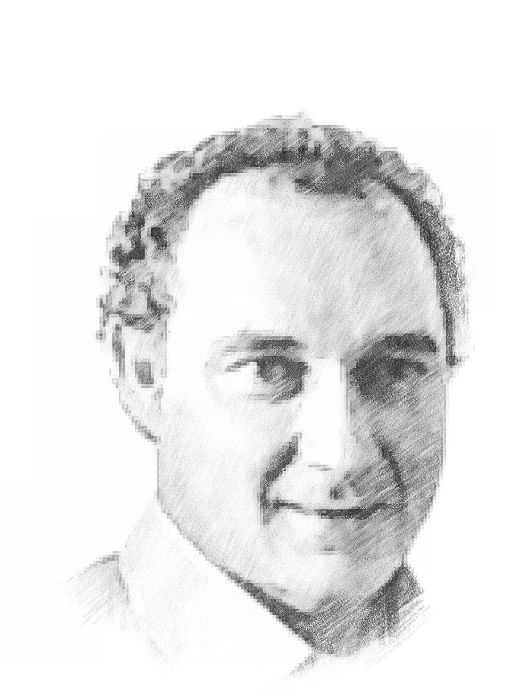
Stefano Mugnaini
|
|
Dr. Stefano Mugnaini PhD
Physiotherapist
Tor Vergata University Hospital
Rome - Italy
|
CONTACTS
The Healthy World Association
Secrétariat
Rue Henry Correvon, 15
CH-1400 Yverdon-les-Bains
telephone: +41 22 5349705
secretariat [at] hwassociation.org
direction [at] hwassociation.org
BYLAWS  Download English version
Download English version
Warning: only the Bylaws (in French) registered in the
Commercial Register of the Canton Vaud are legally binding.
1. GENERAL PROVISIONS
- Article 1 - Constitution, duration, seat
Under the name of "Healthy World Association" (herewith "HWA" or "HWA Association" or "Association") is established
an association under the private law in the meaning of Articles 60 and followings of the Swiss Civil Code.
The HWA Association is concerned by the domain of the methods and the technologies for health in the four areas of body (healthy body:
wellness, fitness and nutrition), brain (healthy mind: neurodegenerative conditions and cognition), population (healthy population:
health for all, hospital systems, health care and telemedicine, environment health, occupational medicine, safety) and environment
(healthy environment: protection and optimization of natural resources and the environment for the maintenance of human health,
prevention and control of the risk of climate change, control and water management to promote food production, particularly within the
developing Countries).
Its duration is unlimited.
Its headquarters are in 1400 Yverdon-les-Bains (VD), Switzerland.
- Article 2 - Scope
The HWA Association's main purpose is to seek and stimulate the scientific, political, and social and research
domains to improve the health of the populations, with a special focus on the poor and developing Countries.
More in detail the purpose whom the HWA Association is dedicated is, without limitation:
- the production and dissemination of new knowledge:
- the technological and scientific monitoring, as the evaluation and the development of new research, new products or new
health methods to make them available to universities and research centers;
- the training of health operators, industry personnel and also the stimulation of awareness (empowerment) of the populations
and patients;
- the promotion of the exchange of information between the academia and the professional practice:
- the organization of regular meetings as courses and seminars;
- the organization of conferences, the Healthy World Conference and the International Conference on Technologies related to
thermal baths and SPAs;
- the study of qualitative and quantitative aspects of exposure to health risk factors in the population and the workers;
- the technological monitoring and the study of innovative technologies:
- for persons with disabilities;
- in the fields of telemedicine and of the applications of information technologies and communication in medicine and health;
- in the field of sustainable resources and environmental protection;
- the cooperation and engagement with external partners.
Secondarily the Association can take care of other areas having an important scientific and applicative connection with those listed
above.
The Association is politically and religiously neutral.
2. MEMBERS
- Article 3 - Quality of Members
There are three categories of Members:
- Honorary Members;
- Individual Members;
- Collective Members;
Membership in the Association is permitted at all times to natural or legal persons interested to the accomplishments of the
objectives indicated at Article 2.
According to its means, the Association envisages the production of a newsletter for the Members and the people contacting
the Association.
- Article 4 - Admission and exclusion
The admission of a Member shall be ratified by the General Meeting on the Director's proposal.
The membership shall be extinguished:
- with the resignation addressed in writing to the Director, provided the Member announces its resignation at least six
months before the end of a financial year;
- with the exclusion pronounced by the General Assembly on a proposal from the Director or a group representing the
majority of the Members of the Association; the indication of the reason for exclusion is not mandatory;
- with the dissolution of the Association.
The membership of a founding member of the Association shall be extinguished:
- with the resignation addressed in writing to the Director at least three months before the end of a financial year;
- with the exclusion pronounced for a good cause by the General Assembly on a proposal from the Director or group representing the majority
of Members of the Association; exclusion is valid only for a good cause;
- with the dissolution of the Association.
The repeated missing of the payment of membership fees for two years implies the exclusion from the Association.
The loss of membership causes the loss of all rights on the property of the Association. The outgoing Member must fulfil both
contributions for the past years and those of the current year.
Membership is inalienable and does not pass to the heirs. The Director, however, will seek to let the spouse or a direct
descendant of the deceased Member adhere the Association.
- Article 5 - Fees
All the Members of the Association are required to pay membership fees.
- Article 6 - Protection of the social scope
The transformation of the social scope cannot be imposed on any Member.
3. FINANCES
- Article 7 - Resources
The resources of the Association consist of the ordinary annual and extraordinary membership fees, interests in
the fortune of the Association, the revenues from its activities and possible donations and legacies and, in case, the subventions
from the public administration.
The amount of the membership fee is decided by the General Meeting on the Director's proposal.
- Article 8 - Liability
The resources of the Association only meet obligations thereof. The Association is solely responsible for its
debts, which are guaranteed by its social fortune. Any personal liability of members is excluded.
The Direction may use the resources of the Association to defend itself against any third party claims against the Association
or any third party claims against the Director in the exercise of its activities for the Association.
4. ORGANISATION
5. THE GENERAL ASSEMBLY
- Article 10 - Composition
The General Assembly is the supreme body of the Association. It is chaired by the Member of the Committee or, if necessary,
by any Member of the Association designated for this purpose by the Member of the Committee. In the absence of the Director without having appointed
a member to chair the Assembly, they are the members present to the General Assembly who elect the President for that session.
Each member of the Association (including collective Members) has one vote.
- Article 11 - Convocation
The Ordinary General Assembly meets at least once a year at the call of the Director observing a notice of 10 days.
An extraordinary General Assembly may be convened at any time by decision of the Director or at the written request of at least 1/5th
of the Members, request addressed to the management. It meets observing a notice of 10 days or shorter, if all members agree.
The agenda of the Ordinary Annual General Assembly necessarily includes:
- the annual report of the Direction on the activities of the Association during the past year;
- an exchange of views/decisions regarding the development of the Association;
- the cash reports,
- the election of the Member of the Committee;
- the individual proposals.
The Direction is obliged to put into the agenda of the Genal Assembly (ordinary or extraordinary) any proposal submitted by
a Member in writing at least 10 days in advance.
- Article 13 - Decisions
The decisions of the Association are taken in the Assembly.
The General Assembly makes decisions with the majority of the Members present.
In case of equality of votes, the President of the Assembly is dominating.
Any modification of the Bylaws, dissolution of the Association or merger with other associations must be approved by a majority of the
Members present at the Assembly.
The decisions are taken hand-up unless a third of the members present request a secret ballot.
Any absent member may be represented by another member of the Association only. To do this, the Member representing the absent member
will be provided with an original letter of power, duly signed and dated by the absent member, which will presented to the President.
After inspection by the President, it shall notify the Member that he has two distinct votes, one for himself and one for the Member
he represents; as such, the represented Member is considered Member present.
Proposals which all Members have signed in writing are equivalent to a decision of the General Assembly.
Any Member is by law deprived of voting rights in decisions on a case or a trial of the Association, when he himself, his spouse or
relatives by marriage are parties.
All decisions taken by the Assembly are the subject of a written report. They cannot be taken out of the agenda but if the Bylaws
expressly permit.
6. DIRECTION
- Article 14 - Composition
The Direction consists of a Committee of one member who is elected for a term of one year. He may be re-elected.
The Direction organizes itself.
- Article 15 - Powers
The Direction has the right and duty to manage the affairs of the Association and represent it in accordance
with the Bylaws.
It manages the affairs of the Association; as part of this task, it is incumbent upon all responsibilities not specifically back
to the General Assembly or to another body, namely between others:
- to register imperatively the Association in the Commercial Register of the Canton, before any commitment and/or activity of the
Association;
- to prepare the General Assembly;
- to execute the decisions taken by the General Assembly;
- to be accountable to the demands of Members at General Meetings or to Extraordinary General Meetings;
- to propose the admission or exclusion of Members;
- to keep the books of the Association; the provisions of the Code of Obligations relating to commercial accounting and
presentation of accounts shall apply mutatis mutandis;
- to implement the necessary actions to fulfil the social purpose of the Association or particular actions related to:
- the cooperation with other institutions and associations having a similar scope;
- the organization of seminars, conferences, scientific meetings;
- the technological and scientific intelligence;
- the organization and the management of the website of the Association;
- the management of a list of mail/email links for managing the Association;
- the evaluation of tools and performance for research;
- the internationalization of the Association;
- all other possible actions.
The Direction may delegate administrative tasks to a third party.
The Direction may assign specific tasks to Committees appointed by it.
The Direction hires (fires) the employees and volunteers of the Association. It may entrust, a person of the Association or an
external person to it, a mandate limited in time.
- Article 16 - Commitment
After decision duly taken by the General Assembly and the Direction, the Association is validly bound
by the individual signature of the Member of the Committee.
7. COMMISSIONS
- Article 17 - Composition et powers
The Commissions aim to participate in the objectives of the Association on a theme or specific project,
by completing any of the tasks listed in Article 2 of the Bylaws and/or advising the Association.
These Commissions are constituted by the Direction on behalf of the Assembly and are composed of personalities that could make a
significant contribution to the progress of work on specific themes or projects.
The list of the names of the Members is established by the Direction, which appoints a chairman-rapporteur and a secretary. The
Direction establishes the specifications, duration and the operating budget of the Commission which is proposed to create.
Commission members have no power of decision or representation within the limits of their mandate. They have in principle
no right on the results and the assets of the Association.
The Direction fixes an eventual compensation for the Commission members as part of the acceptance of the budget of each Commission.
8. FINAL PROVISIONS
- Article 19 - Dissolution
The dissolution of the Association is in accordance with legal requirements. The dissolution decision must be
taken by two thirds of the Members present at the General Meeting.
- Article 20 - Liquidation
It is the Direction which has the mandate for liquidation.
The assets of the Association shall then be allocated to another institution with similar aims.
- Article 21 - Reference to the Law
The Bylaws cannot derogate from the rules whose application takes place under a mandatory provision of the
Law. For everything which is not expressly mentioned in these Bylaws, the provisions of the Civil Code and the Law in force in
Switzerland apply.
- Article 22 - Entry into force of the Bylaws
Adopted by the General Assembly of the Association Constitution, these Bylaws shall come into force as
of March 17, 2016.
The President: Enrico Maria Staderini The Secretary: Sandro Gentili
STATUTS  Download version française
Download version française
Attention: seulement les Statuts déposés au
Registre du Commerce du Canton Vaud font foi.
1. DISPOSITIONS GENERALES
- Article 1 - Constitution, durée, siège
Sous la dénomination "Healthy World Association" (dans ce document dorénavant indiquée "HWA", ou
"Association HWA" ou "Association") est constituée une Association de droit privé au sens des articles 60
et suivants du Code Civil Suisse.
L'Association HWA s'occupe du domaine des méthodes et des technologies pour la santé dans le quatre aspects du
corps (healthy body: bien-être, sport et nutrition), du cerveau (healthy mind: conditions neurodégénératives
et de la cognition), de la population (healthy population: médecine pour tous, systèmes hospitaliers, soins et
télémédecine, santé de l'ambiant de travail, sécurité) et de l'environnement (healthy
environment: protection et optimisation des ressources naturelles et de l'environnement pour le maintien de la santé
humaine, prévention et contrôle du risque des changements climatiques, contrôle et gestion de l'eau pour promouvoir la
production alimentaire, en particulier à l'aide des Pays en développement).
Sa durée est illimitée.
Son siège est à 1400 Yverdon-les-Bains (VD).
- Article 2 - But
L'Association HWA a pour but principal tel de rechercher et de stimuler les milieux scientifiques,
politiques, sociaux et de la recherche pour l'amélioration de la santé des populations, avec un focus particulier
vers les populations défavorisées et les Pays en développement.
Plus en détail le but de l'Association HWA se consacre, de façon non exclusive, à:
- la production et la divulgation de nouvelles connaissances:
- la veille technologique et scientifique, comme la valorisation et le développement de nouvelles recherches,
nouveaux produits ou nouvelles méthodes de santé pour les mettre à disposition des universités et des
centres de recherche;
- la formation professionnelle des opérateurs de santé, du personnel de l'industrie et aussi la prise de
conscience (empowerment) de la population et des patients;
- la promotion de l'échange d'informations entre le milieu universitaire et la pratique professionnelle:
- l'organisation de réunions régulières comme cours, séminaires;
- l'organisation de conférences dont la Healthy World Conference et le Congrès International sur les
Technologies liées au Thermalisme et les SPAs;
- l'étude des aspects qualitatifs et quantitatifs de l'exposition aux facteurs de risque dans la population et
dans les travailleurs;
- la veille technologique et l'étude des technologies innovantes:
- pour les personnes en situation de handicap;
- dans les domaines de la télémédecine et les applications des technologies informatiques et de
la communication en médecine et santé;
- dans le domaine des ressources durables et de la protection de l'environnement;
- la coopération et l'engagement avec des partenaires extérieurs.
Secondairement l'Association peut s'occuper d'autres domaines ayants un lien scientifique et applicatif important avec
ceux indiqués ci-dessus.
L'Association est politiquement et religieusement neutre.
2. MEMBRES
- Article 3 - Qualité de Membres
Il y a trois catégories de Membres:
- Membres honoraires
- Membres individuels
- Membres collectifs
Peuvent devenir Membres de l'Association, en tout temps, les personnes physiques ou morales intéressées
à la réalisation des objectifs fixés par l'Article 2.
Dans la mesure de ses moyens, l'Association envisage la production d'un bulletin d'information à
l'intention des Membres et des personnes proches de l'Association.
- Article 4 - Admission et exclusion
L'admission d'un Membre est ratifiée par l'Assemblée Générale sur proposition de la
Direction.
La qualité de Membre s'éteint:
- par la démission, adressée par écrit à la Direction, pourvu qu'il annonce sa sortie six mois avant la
fin d'un exercice annuel;
- par l'exclusion prononcée par l'Assemblée Générale sur proposition de la Direction ou d'un groupe
représentant la majorité des Membres de l'Association; l'indication du motif d'exclusion n'est pas obligatoire;
- par la dissolution de l'Association.
La qualité de Membre d'un Membre fondateur de l'Association s'éteint:
- par la démission, adressée par écrit à la Direction, trois mois avant la fin d'un exercice annuel;
- par l'exclusion pour de justes motifs prononcée par l'Assemblée Générale sur proposition de la Direction ou d'un groupe
représentant la majorité des Membres de l'Association; l'exclusion n'est valable que pour juste motif;
- par la dissolution de l'Association.
Le non-paiement répété des cotisations (deux ans) entraîne l'exclusion de l'Association.
La perte de la qualité de Membre entraîne la perte de tous les droits à l'égard des biens de l'Association.
Le Membre sortant doit s'acquitter aussi bien des cotisations des exercices passés que de celles de l'exercice en
cours.
La qualité de membre est inaliénable et ne passe point aux héritiers. La Direction veillera néanmoins
à faire adhérer le (la) conjoint(e) ou un descendant direct du Membre défunt.
- Article 5 - Cotisations
Tous les Membres de l'Association sont tenus de verser des cotisations.
- Article 6 - Protection du but social
La transformation du but social ne peut pas être imposée à aucun Membre.
3. FINANCES
- Article 7 - Ressources
Les ressources de l'Association sont constituées par les cotisations ordinaires annuelles et extraordinaires
des Membres, les intérêts de la fortune de l'Association, les recettes de ses activités et d'éventuels dons ou
legs et, les cas échéant, par des subventions des pouvoirs publics.
Le montant des cotisations est décidé par l'Assemblée Générale sur proposition de la Direction.
- Article 8 - Responsabilité
Les ressources de l'Association répondent seules des obligations de celle-ci. L'Association répond
seule de ses dettes, qui sont garanties par sa fortune sociale. Toute responsabilité personnelle des Membres est exclue.
La Direction peut utiliser les ressources de l'Association pour se défendre de toute revendication de tiers à l'encontre
de l'Association ou de toute revendication de tiers à l'encontre du Directeur dans l'exercice de ses activités pour
l'Association.
4. ORGANISATION
5. ASSEMBLÉE GÉNÉRALE
- Article 10 - Composition
L'Assemblée Générale est l'organe suprême de l'Association. Elle est présidée
par le Membre du Comité ou, si nécessaire, par un des Membres de l'Association désigné à cet effet par le Directeur.
Dans l'absence du Membre du Comité sans qu'il ait désigné un Membre pour présider l'Assemblée, ils sont les
Membres qui d'abord élisent le Président pour celle séance.
Chaque Membre de l'Association (y compris les Membres collectifs) dispose d'une voix lors des votations.
- Article 11 - Convocation
L'Assemblée Générale ordinaire se réunit au moins une fois par année sur convocation
de la Direction en observant un délai de 10 jours à l'avance.
Une Assemblée Générale extraordinaire peut être convoquée en tout temps sur décision de la
Direction ou sur demande écrite d'au moins le 1/5ème des Membres adressée à la Direction. Elle se réunit
en observant un délai de 10 jours à l'avance, ou plus court, si tous les Membres en donnent leur accord.
L'ordre du jour de l'Assemblée annuelle ordinaire comprend nécessairement:
- le rapport annuel de la Direction sur l'acitivité de l'Association pendant l'année écoulée;
- un échange de points de vue/décisions concernant le développement de l'Association;
- les rapports de trésorerie;
- l'élection du Membre du Comité;
- les propositions individuelles.
La Direction est tenue de porter à l'ordre du jour de l'Assemblée Générale (ordinaire ou
extraordinaire) toute proposition d'un membre présentée par écrit au moins 10 jours %#224; l'avance.
- Article 13 - Décisions
Les décisions de l'Association sont prises en Assemblée.
L'Assemblée Générale prend ses décisions et procède aux nominations à la majorité des voix des
Membres présents.
En cas d'égalité des voix, celle du Président de l'Assemblée est prépondérante.
Toute modification des Statuts, dissolution de l'Association ou fusion avec d'autres Associations doit être approuvée
à la majorité des Membres présents à l'Assemblée.
Les décisions ont lieu à main levée, sauf si un tiers des Membres présents demande de vote à bulletin secret.
Tout Membre absent peut se faire représenter par un autre Membre de l'Association uniquement. Pour ce faire, le Membre
représentant le Membre absent devra être muni d'une procuration originale, dûment datée et signée par le Membre
absent, qu'il remettra en début de séance au Président. Après contrôle par le Président, celui-ci
notifiera à ce Membre qu'il dispose de deux voix de vote distinctes, soit l'une pour lui-même et l'autre pour le Membre
qu'il représente; à ce titre, le Membre représenté est considéré comme Membre présent.
Les propositions auxquelles tous les Membres ont adhéré par écrit équivalent à une décision de
l'Assemblée Générale.
Tout Membre est de par la Loi privé de son droit de vote droit dans les décisions relatives à une affaire ou un
procès de l'Association, lorsque lui-même, son conjoint ou ses parents ou alliés en ligne directe sont parties en
cause.
Toutes les décisions prises par l'Assemblée font l'objet d'un procès-verbal écrit. Elles ne peuvent être
prises en dehors de l'ordre du jour que si les Statuts le permettent expressément.
6. DIRECTION
- Article 14 - Composition
La Direction se compose d'un Comité d'un membre qui est élu pour une durée d'un an. Il est réélegible.
la Direction s'organise elle-même.
- Article 15 - Attributions
La Direction a le droit et le devoir de gérer les affaires de l'Association et de la représenter
en conformité des Statuts.
Elle gère les affaires de l'Association; dans le cadre de cette tâche, il lui incombe toutes les responsabilités
qui ne reviennent pas expressément à l'Assemblée Générale ou à un autre organe, soit entre autres:
- d'inscrire impérativement l'Association au registre du commerce, avant tout engagement et/ou toute activité
de l'Association;
- de préparer l'Assemblée Générale;
- d'exécuter les décisions prises par l'Assemblée Générale;
- de rendre des comptes aux demandes des Membres lors des AssemblVes Générales ou des Assemblées
Générales extraordinaires;
- de proposer l'admission ou l'exclusion de Membres;
- de tenir les livres de l'Association; les dispositions du code des obligations relatives à la comptabilité
commerciale et à la présentation des comptes sont applicables par analogie;
- de mener les actions nécessaires à satisfaire le but social de l'Association, soit notamment les actions liées
à:
- la coopération avec d'autres Associations et institutions ayants un but similaire;
- l'organisation de séminaires, congrès, rencontres scientifiques;
- la veille technologique et scientifique;
- l'organisation et la gestion du site web de l'Association;
- la gestion d'une liste de courrier/courriel pour la gestion de liens de l'Association;
- l'évaluation d'outils et de recherches performantes;
- l'internationalisation de l'Association;
- toutes les autres actions envisageables.
La Direction peut confier les tâches administratives à un tiers.
La Direction peut confier des tâches spécifiques à des commissions désignées par lui.
La Direction engage (licencie) les collaborateurs salariés et bénévoles de l'Association. Il peut confier à toute
personne de l'Association ou extérieure à celle-ci un mandat limité dans le temps.
- Article 16 - Engagement
Après décision valablement prise par l'Assemblée Générale et la Direction, l'Association
est valablement engagée par la signature individuelle du Membre du Comité.
7. COMMISSIONS
- Article 17 - Composition et attributions
Les Commissions ont pour but de participer aux objectifs de l'Association sur un thème ou projet particulier,
en remplissant l'une ou l'autre des tâches énumérées à l'article 2 des statuts et/ou en conseillant
l'Association.
Ces Commissions sont constituées par la Direction sur mandat de l'Assemblée et sont composées de personnalités
susceptibles d'apporter une contribution significative à l'avancement des travaux sur des thèmes ou projets spécifiques.
La liste nominative des membres est établie par la Direction qui désigne un président-rapporteur et un secrétaire.
La Direction établit le cahier des charges, la durée et le budget de fonctionnement de la Commission qu'il se
propose de créer.
Les membres des Commissions n'ont de pouvoir de décisions ou de représentation que dans les limites fixées par
leur mandat. Ils n'ont en principe pas de droit sur les résultats des travaux et les actifs de l'Association.
La Direction fixe la rémunération éventuelle des membres des Commissions dans le cadre de l'acceptation du
budget de chaque Commission.
8. DISPOSITIONS FINALES
- Article 19 - Dissolution
La dissolution de l'Association se fait conformément aux prescriptions légales. La décision
de dissolution doit être prise par les deux tiers des Membres présents à l'Assemblée Générale.
- Article 20 - Liquidation
C'est à la Direction que revient le mandat de liquidation.
Les avoirs de l'Association doivent alors être attribués à une autre institution poursuivant des buts similaires.
- Article 21 - Renvoi à la Loi
Les Statuts ne peuvent déroger aux règles dont l'application a lieu en vertu d'une disposition
impérative de la Loi. Pour tout ce qui n'est pas expressément mentionné dans ces Statuts les dispositions
du Code civil et de la Loi en vigueur en Suisse s'appliquent.
- Article 22 - Entrée en vigueur des Statuts
Adoptés par l'Assemblée Générale de constitution de l'Association, les présents
Statuts entrent en vigueur le 17 mars 2016.
Le Président: Enrico Maria Staderini Le Secrétaire: Sandro Gentili
|
|
|
